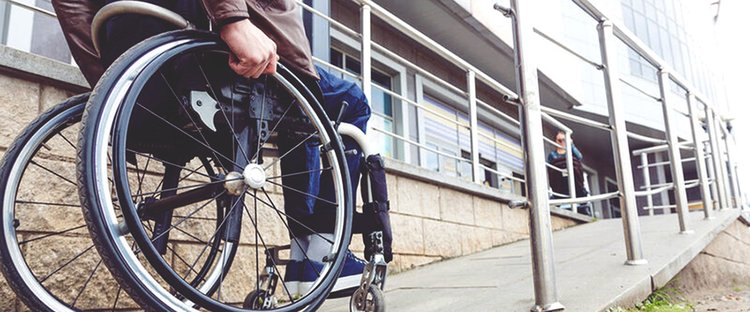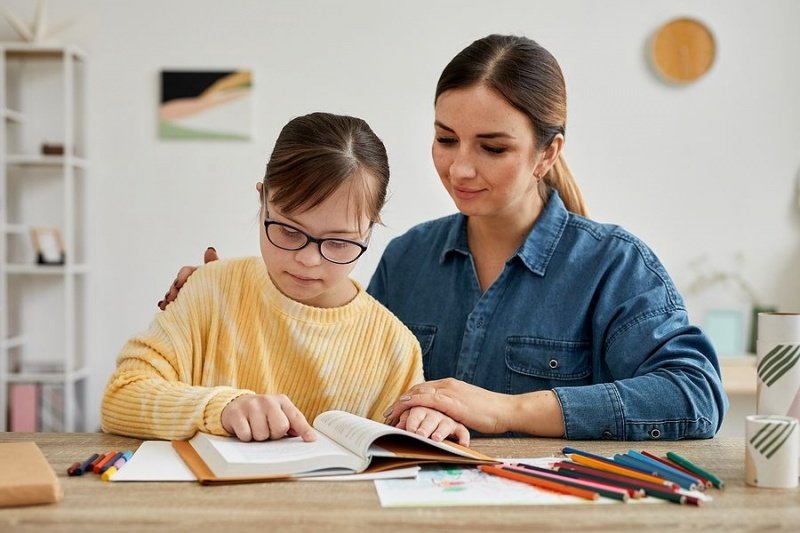

Respecting the rights of people with disabilities starts with each one of us, and primarily with the state itself. The Convention on the Rights of Persons with Disabilities, among other things, addresses the issue of accessibility. While the word “accessibility” usually brings to mind sidewalks, ramps, etc., these days, our thoughts turn to polling stations and voting booths.
Respect for persons with disabilities entails measures that allow every citizen to participate unhindered in electoral procedures. However, while in other countries there is the possibility of electronic voting, exercising the right using sign language, and ballots in Braille, in Cyprus we are far behind in this regard!
By Konstantinos Zachariou
Significant obstacles must be overcome by people with disabilities in order to exercise their voting rights, as the state limits itself to very basic provisions regarding the necessary accommodations for ensuring equal access for all citizens. In contrast, other EU countries provide significant facilitations, as evidenced by a report prepared by the relevant service of the European Parliament.
More specifically, in Cyprus, the physical presence of the voter at the designated polling station, determined by the competent state authority based on their residential address, is required. In contrast, in many EU countries, other options are available (either to all citizens or specifically targeted at people with disabilities), such as postal voting, the possibility of exercising voting rights in advance, voting by proxy, and electronic voting.
Additionally, the only tools utilized in Cyprus, which can be considered as supportive for people with disabilities, are those applicable to all voters: large print ballot papers, easy access to polling stations, and the freedom to choose the assistance needed by each individual.
In other countries, many more tools are utilized to provide assistance to people with disabilities, such as different standards for printing ballot papers depending on the type of disability, the use of magnifying lenses, ensuring adequate lighting, audio description of the ballot, the option to use sign language, printing of ballot papers in Braille, exercising the electoral right through mobile units, and the choice of a different polling center from the one designated by the competent government agency.
What applies in other countries
The accommodations provided to people with disabilities in other countries are as follows:
Belgium: There is the option of postal voting and proxy voting, as well as tools for using different ballot templates and magnifying lenses, and audio description of the ballot.
Spain: There is the option of postal voting. Additionally, tools are provided for using different templates and magnifying lenses, audio description of the ballot, using sign language, and using ballots in Braille.
Ireland: Tools are provided for using different templates, using Braille ballots, and voting in mobile units.
Netherlands: There is the option for proxy voting. Additionally, tools are provided for using magnifying lenses and sign language.
Estonia: There is the option of electronic voting, as well as advance voting. Additionally, tools are provided for using magnifying lenses and sign language, as well as voting in mobile units.
Croatia: Tools are provided for using different templates depending on the type of disability, audio description of the ballot, using sign language, and voting in mobile units.
Hungary: There is the option of postal voting. Additionally, tools are provided for using different ballot templates, using Braille ballots, and voting in mobile units.
Luxembourg: There is the option of postal voting. Additionally, tools are provided for using different templates, audio description of the ballot, using Braille ballots, and voting in mobile units.
Slovenia: There is the option of postal voting and advance voting. Additionally, tools are provided for using different templates and voting in mobile units.
Austria: There is the option of postal voting. Additionally, tools are provided for using different templates and voting in mobile units.
Germany: There is the option of postal voting. Additionally, tools are provided for using different templates, using sign language, and choosing a polling station.
Denmark: There is the option of advance voting. Additionally, tools are provided for using magnifying lenses and voting in mobile units.
Finland: There is the option of postal voting and advance voting. Additionally, tools are provided for using different templates depending on the type of disability, using magnifying lenses, and voting in mobile units.
Czech Republic: Tools are provided for audio description of the ballot and voting in mobile units.
France: There is the option of postal voting, proxy voting, internet voting, and audio description of the ballot.
Latvia: Tools are provided for audio description of the ballot and voting in mobile units.
Poland: There is the option of postal voting, proxy voting, and using different templates.
Portugal: There is the option of proxy voting. Additionally, tools are provided for using different templates, using Braille ballots, and voting in mobile units.
Sweden: There is the option of postal voting and proxy voting. Additionally, tools are provided for using magnifying lenses, using Braille ballots, and voting in mobile units.
Bulgaria: The option of voting in mobile units is available.
Italy: The option of voting in mobile units is available.
Malta: There is the option of advance voting. Additionally, tools are provided for using different templates and using Braille ballots.
Romania: There is the option of postal voting and voting in mobile units.
Slovakia: The option of voting in mobile units is available.
Greece: There is no option other than physical presence, and the only tools provided for people with disabilities are the minimum requirements applicable in all countries, concerning easy access to polling stations and booths. It is the only country, along with Cyprus, where almost no facilitation is provided for people with disabilities to exercise their voting rights.








